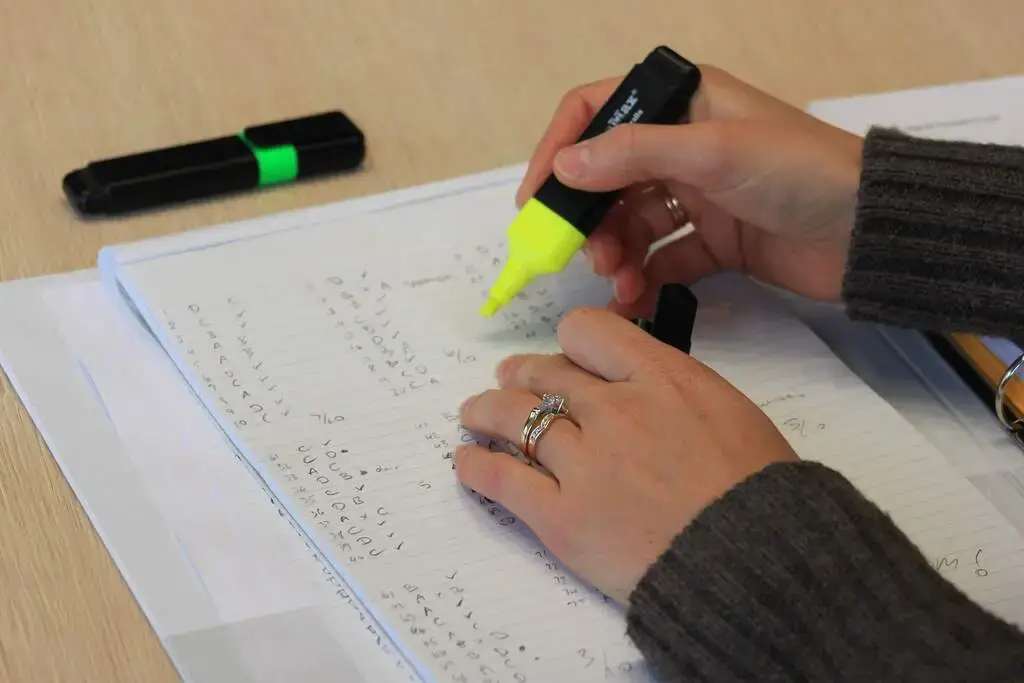What is a Grade 9?
In England, a Grade 9 represents the pinnacle of achievement in the current GCSE grading system. It is awarded to secondary school students who demonstrate exceptional mastery of their GCSE subjects, consistently achieving top marks across all assessments and examinations. In 2024, obtaining this highest grade requires not only a comprehensive understanding of the subject content but also the ability to engage in sophisticated analysis and effectively apply that knowledge to a variety of questions.
Students aiming for this key grade must communicate with precision and consistently hit the top band of mark schemes (our GCSE tutors are here to help with this). The new grading system, introduced to allow for greater differentiation, makes it clear that students who score a Grade 9 have reached a level above the old grade scale.
1. The Evolution of the GCSE Grading System
Before diving into strategies, it’s important to understand how the grading system has evolved. The shift from the old grading system of letter grades (A*-G) to the numerical system with number grades (1-9) was designed to offer more differentiation at the top end, as well as allow better differentiation between grade C students (e.g. standard pass vs a ‘good pass’). This has made the highest grade more competitive to achieve, as students must now score in the uppermost percentile. A Grade 4, for example, represents a standard pass, equivalent to the old grade C. A Grade 8 would equivalent to somewhere between the old A and old A*.
The new grading system provides finer distinctions between students’ performance, allowing those who truly excel to stand out. For students aiming to achieve a Grade 9, knowing how these changes impact assessments is critical.

2. Understanding Grade Boundaries
Every year, exam boards establish GCSE grade boundaries to determine the marks required to achieve each gcse grade. These boundaries fluctuate based on the difficulty of that year’s exams. Students aiming for grade 9s should consistently perform well in all assessments, ensuring they stay well above the adjacent grades like 8 or 7.
By practicing with past papers, students can gauge how examiners mark responses and become familiar with the types of questions that typically fall within the grade scale. Using this practice, students can push themselves to secure more marks across all subjects.
3. Mastery of the GCSE Syllabus
A key aspect of achieving the top gcse grades is mastering the entire syllabus for each subject. Whether it’s GCSE Maths, GCSE English, or GCSE Science, students must have a deep understanding of the material and be prepared to tackle both straightforward and complex questions.
It’s important to not only cover the core curriculum but also dive deeper into more challenging topics. Using resources like textbooks, revision guides, and extra tutoring can help students solidify their grasp of the subjects. Regular revision, including practicing mock exams, is crucial for achieving success.
4. Importance of Problem Solving

Problem-solving skills are vital, particularly in GCSE Maths and science subjects. Many students find that the ability to solve unfamiliar problems is what separates them from the lower grades. These skills are honed through continuous practice with a variety of question types, not just the ones encountered in class.
For students aiming to achieve a Grade 9, regular exposure to exam style questions and knowing how to interpret different question styles is essential. This builds confidence and allows students to tackle any question that comes their way during final exams.
5. Exam Preparation: Communication is Key
Even with a good grip of the material, students need to be able to communicate their knowledge effectively in exams. For essay-based subjects like GCSE English Language and English Literature, clear and concise writing is critical. Students who excel at achieving grades 8 or 9 often have a well-structured approach to answering questions, ensuring their responses are logical and well-argued.
Being familiar with mark schemes for these gcse exams helps students understand what examiners are looking for, particularly in terms of structuring answers to hit all the key points.
6. Developing a Grade 9 Mindset
Having the right mindset is pivotal. Success at this level requires discipline, focus, and a determination to go beyond the basics. Students aiming for the grade 9 must be willing to put in the hours, but also work smartly by targeting areas of weakness and refining their exam technique.
Additionally, it’s important to remain positive and persistent, even when the material feels challenging. Having a growth mindset—believing that improvement is possible through effort—is a trait shared by many students who achieve top gcse grades.
7. The Role of Teachers and Tutors
Students don’t achieve top GCSE grades on their own. Support from teachers and tutors is essential. In the classroom, teachers can help explain difficult concepts, while tutors offer personalized support that targets each student’s individual needs. A tutor can help break down complicated material, offer tips on performance strategies, and provide additional material for revision.
For those aiming for a Grade 9, it’s often useful to work closely with a tutor who can provide targeted feedback, simulate exam conditions, and ensure that the student’s revision is as effective as possible.
8. Revising with Resources
Utilising a range of learning materials is one of the most effective ways to ensure that revision covers all the necessary content. From online tutorials to past papers, students who use a variety of study aids are better prepared to tackle their exams. Mark schemes also offer valuable insights into how examiners award marks and can help students fine-tune their answers to secure maximum points.

Some of the most valuable resources include online educational platforms, where students can access practice questions, watch video tutorials, and take quizzes to test their knowledge.
9. Creative Thinking and Application
A Grade 9 student needs to be more than just well-prepared—they need to think creatively. This is especially important for subjects like GCSE English and GCSE Science, where students may be asked to apply their knowledge in unfamiliar contexts. Learning to think critically and spot patterns in exam boards’ questions is a skill that develops through practice and exposure to a variety of question types.
For example, mark schemes often follow predictable patterns, and students who notice these patterns can answer questions more efficiently. This kind of creative thinking is what sets a Grade 9 student apart from others.
10. The Importance of Past Papers and Mock Exams
Practicing with past papers is an essential step too. These papers not only familiarise students with the exam format but also highlight the areas where they need to improve. Completing exam-style papers under timed conditions allows students to simulate the pressure of exam time, ensuring they can manage their time effectively during the real thing.
Through regular practice, students develop a strong familiarity of the process, improve their writing speed, and gain confidence in their ability to handle the pressure of real exams.
11. Targeting English and Maths
For many students, excelling in GCSE English Language and GCSE Maths is crucial. These core subjects are required for most future academic and career opportunities. Therefore, securing high grades in these gcse subjects is a priority. Understanding the new grading system and its specific grade boundaries is key to knowing how well students need to perform.
Particularly for maths gcses, developing strong problem-solving skills is essential, and these skills can only be achieved through continuous practice. By staying on top of these subjects, students ensure they are well-positioned to achieve the best possible gcse grades.
12. Preparing for the Final Exams
The culmination of all this preparation comes during the final exams. By this point, students who are well-prepared should feel confident in their ability to apply what they’ve learned. Achieving a Grade 9 requires more than just rote memorisation; it’s about understanding the material deeply and being able to apply it in a variety of contexts.
During exam time, students must stay calm, focused, and confident. A well-structured revision plan, coupled with regular practice, will ensure that students are ready to secure the highest grade possible.
13. Continuous Improvement: The Role of Feedback
A key component of achieving top GCSE grades is using feedback to improve. After completing practice papers or past paper questions, students should review their answers in detail. Recognising why they lost marks and how they can improve is critical for success.
By continually refining their exam technique, students can make incremental improvements that add up to significant gains by the time the real exams arrive.
14. Resources for Grade 9 Success
As students prepare for their GCSE exams, having access to the right resources can make all the difference. Educational platforms, tutors, and study groups are all valuable tools that can help students improve their understanding of key topics and achieve higher marks.
It’s also worth noting that some resources, such as past exam board reports, offer insights into common pitfalls and areas where students can improve. These reports, along with mark schemes, are invaluable when it comes to perfecting exam technique.
Conclusion
Achieving a Grade 9 at GCSE requires dedication, focus, and a strategic approach to learning. By mastering the GCSE syllabus, practicing regularly with past papers, and staying positive, students can position themselves for success. Whether it’s in English Literature, English Language, Maths or Science, the road to top grades is paved with hard work, but it is entirely achievable with the right mindset and preparation. With the support of teachers, tutors, and structured revision, every student has the potential to reach this top level.

